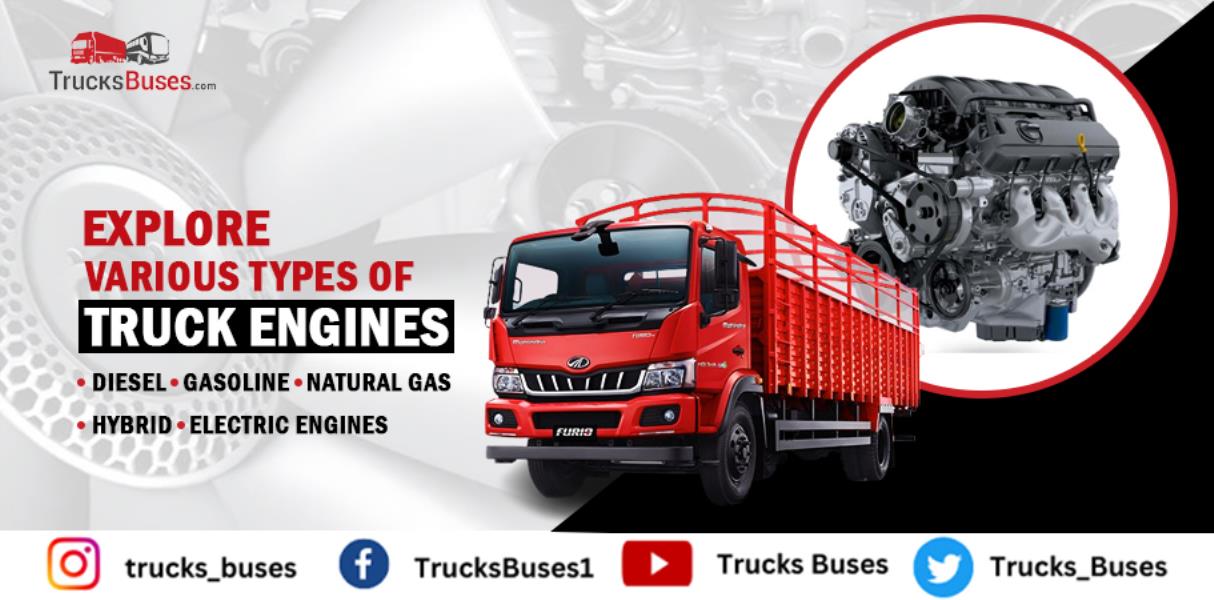Exploring Various Types of Truck Engines: How They Work and Their Uses
Truck engines are the heart of any truck, powering it and ensuring it performs well under various conditions. Different types of truck engines are used depending on the truck's purpose and requirements. Understanding these engines helps in choosing the right truck for specific needs. Here, we will explore the main types of truck engines, how they work, and their applications.

Diesel Engines
Diesel engines are the most common type of engine used in trucks. They are known for their durability and fuel efficiency. Diesel engines operate by compressing air to a high temperature and then injecting diesel fuel into the hot air. This causes the fuel to ignite and power the engine.
- How They Work: In a diesel engine, air is compressed within the cylinder, creating a high temperature. Diesel fuel is injected into this hot, compressed air, causing combustion. The energy from this combustion pushes the pistons, which turn the crankshaft and power the truck.
- Applications: Diesel engines are ideal for heavy-duty trucks that need to carry large loads or travel long distances. They are commonly used in freight trucks, construction vehicles, and buses due to their high torque and fuel efficiency.
Gasoline Engines
Gasoline engines are less common in heavy trucks but are still used in lighter trucks and some commercial vehicles. These engines operate using a spark plug to ignite a mixture of air and gasoline.
- How They Work: In a gasoline engine, air and gasoline are mixed in the intake system. The mixture is then compressed in the cylinder, and a spark plug ignites it. This combustion drives the pistons and turns the crankshaft, powering the truck.
- Applications: Gasoline engines are often used in lighter trucks and vehicles that do not require the heavy-duty performance of diesel engines. They are suitable for smaller delivery trucks and vehicles used for lighter commercial purposes.
Natural Gas Engines
Natural gas engines use compressed natural gas (CNG) or liquefied natural gas (LNG) as fuel. These engines are gaining popularity due to their environmental benefits and lower emissions.
- How They Work: Natural gas engines operate similarly to gasoline engines but use natural gas instead of gasoline. The fuel is mixed with air and ignited by a spark plug to produce power.
- Applications: Natural gas engines are used in trucks that are focused on reducing environmental impact. They are becoming more common in city delivery trucks and municipal vehicles due to their lower emissions and cleaner operation.
Hybrid Engines
Hybrid engines combine traditional internal combustion engines with electric motors. This combination helps improve fuel efficiency and reduce emissions.
- How They Work: A hybrid engine uses both an internal combustion engine (usually gasoline) and an electric motor. The electric motor can power the truck at low speeds or assist the engine during acceleration. This combination reduces fuel consumption and emissions.
- Applications: Hybrid engines are used in trucks that aim to balance performance with environmental concerns. They are often found in urban delivery trucks and other applications where reducing fuel consumption and emissions is a priority.
Electric Engines
Electric engines are powered entirely by electricity stored in batteries. They produce no tailpipe emissions and are known for their quiet operation.
- How They Work: Electric engines use electric power from batteries to drive electric motors. When the truck is in use, the electric motor converts electrical energy into mechanical energy to move the truck.
- Applications: Electric engines are becoming popular in city trucks and delivery vehicles where quiet operation and zero emissions are important. They are also used in specialized applications where battery power is sufficient to meet performance needs.
Conclusion
Different types of truck engines offer various benefits depending on the truck's intended use. Diesel engines are favored for their power and efficiency in heavy-duty applications. Gasoline engines are used in lighter trucks, while natural gas engines provide an eco-friendly option. Hybrid and electric engines represent the future of trucking with a focus on reducing emissions and improving fuel efficiency. Understanding these engines helps in making informed decisions based on performance needs and environmental considerations.
Read Also:
Difference Between Petrol and Diesel Engines - Key Details
Diesel, CNG, and Electric Trucks: Which Truck is Right for Your Business?